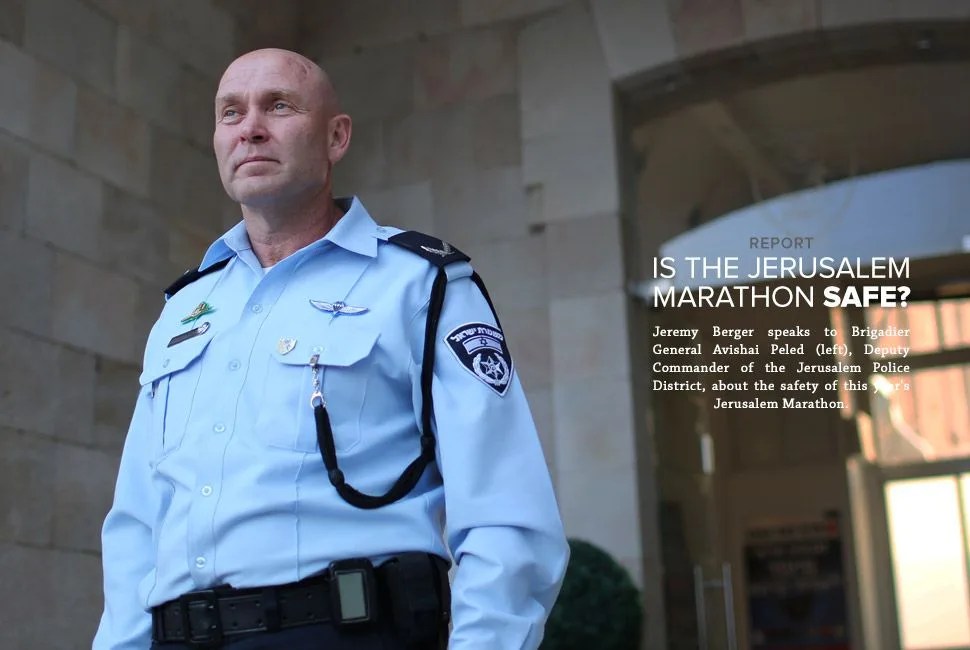“They pay our salary to be worried, and we are worried”, Peled says.
I wasn’t feeling especially worried about being part of the Jerusalem Marathon, at least not before I came to meet with Brigadier General Avishai Peled, Deputy Commander of the Jerusalem Police District. I’d just come from Mahane Yehuda Market, a 15-minute walk from the police station. The Shuk, as it’s known, is a huge market in the city center, packed with vendors selling dried fruit, fish, meat, and mountains of pastries, not to mention the small nooks with bars, restaurants and shops selling local crafts. After work it’s a sea of people bargaining, brushing against each other, recognizing each other. I’d just bought a big basket of strawberries and a handful of knafeh — a Middle Eastern dessert made with pastry, goat cheese and rosewater syrup — and posted a photo of a spice merchant to Instagram.
Then I found out that since 1997 this market has been bombed three times, killing 23 and wounding 282.
It’s a sobering thought, but Peled’s job is to be sober about security threats. He has the resume to do so effectively. He’s number two in charge of safety in the Jerusalem, a tense and compact city of 734,000, and number one in charge of security at this year’s marathon. An imposing figure, he’s tall and serious with a bald head exhibiting a prominent scar on its left side. His experience no doubt informs his appearance: he’s been a tank company commander in the Israel Defense Forces; a member of Yamam, Israel’s elite anti-terrorism police unit; a hostage rescue expert; an agent in Shabak, the Israeli internal security service; and a commander in one of Israel’s undercover police units.
Israel is a country with plenty of scars.
“The quiet days we have in Israel — not to be too dramatic — it’s kind of a lie,” he says. “If the security forces didn’t work around the year against the terror cells, we wouldn’t have quiet days. It’s a result of very hard work. Nothing comes easy here.”
There have only been a handful of suicide bombings in Israel since the Second Intifada, which lasted roughly from 2000 to 2005. There’s no reason to believe that the Jerusalem marathon would be unsafe. Nevertheless, if you’ve spent any time in Israel — I’ve been here twice in the past year — you’ve had lunch on Dizengoff Street in Tel Aviv, site of bombings in 1994 and 1996, picked up trinkets on Ben Yehuda in Jerusalem, bombed in 1997 and 2001, or had a falafel Tel Aviv’s Carmel Market, bombed in 2004. Israel is a country with plenty of scars.
